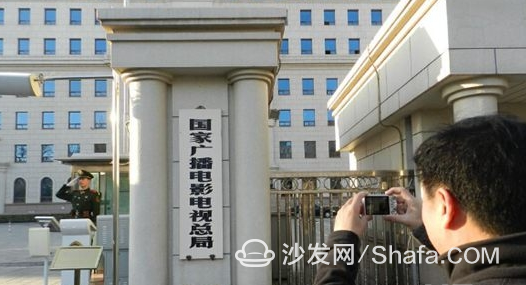After the establishment of the State Radio and Television Network, the broadcasting and television department wielded the policy stick to pave the way for the development of its own market. In the near future, the supervision of the New Deal has been intensive and intensive. The SARFT issued a document recently requesting that some Internet TV integrated broadcast control platforms cancel the time-shifting and viewing functions of TV stations directly provided in the integration platform.
In the two months prior to this, the SARFT issued a document requesting the deletion of Youku, iQiyi, and Sohu videos from Internet set-top boxes such as Wada and other applications of converged video applications and browser software, and subsequently stated that it would suspend the distribution of Internet TV integration services. Licenses and content service licenses are encouraged to be applied by broadcasters at or above the provincial level. At the same time, terminals such as smart TV set-top boxes purchased or integrated by various cable television network companies are required to be installed and used. TVOS 1.0 software must be installed and no TV OS other than TVOS installed. operating system.
In the two months prior to this, the SARFT issued a document requesting the deletion of Youku, iQiyi, and Sohu videos from Internet set-top boxes such as Wada and other applications of converged video applications and browser software, and subsequently stated that it would suspend the distribution of Internet TV integration services. Licenses and content service licenses are encouraged to be applied by broadcasters at or above the provincial level. At the same time, terminals such as smart TV set-top boxes purchased or integrated by various cable television network companies are required to be installed and used. TVOS 1.0 software must be installed and no TV OS other than TVOS installed. operating system.

SARFT
It should be said that compared to the operator's network advantage and the innovation power of Internet companies, the only killer for broadcasters is content. According to the analysis, the Department of Broadcasting and Television tightens its policy entrance and strengthens the right to broadcast and control Internet video integration. The new wave of supervision may be aimed at the Internet industry's content parties and telecommunications operations, or it may have a knock-on effect. However, whether this kind of supervision mode is at the expense of the user experience and whether it is beneficial to the long-term healthy development of the industry will inevitably raise questions, and it is worth pondering in related areas.
Regulatory New Deal
While telecom operators' 4G development is in full swing, the Broadcasting Department has not been idle. In the last two months, the company has issued "stopping orders" for Internet TV content.
While telecom operators' 4G development is in full swing, the Broadcasting Department has not been idle. In the last two months, the company has issued "stopping orders" for Internet TV content.
The TV box has recently attracted the attention of Internet companies and users, but it has also become the first focus of the "reorganization" of the Broadcasting Department. In mid-June, the State Administration of Press, Publication, Radio, Film and Television Network Department sent a letter prohibiting TV sets in Zhejiang and Shanghai from pre-installing unapproved video APPs, and requested Huaxia and BesTV to rectify the two Internet TV licensees and related box products. "Tian Mao Box" and "Little Red Internet TV Box" were named at the same time. Close the Internet TV box video client, targeting a large number of content clients such as Sohu and iQiyi that are on the market, and the intention of the wide-voltage video website's home-made dramas to emerge.
After the smart box, Internet TV supervision followed. In early July, Luo Jianhui, director of the Network Audiovisual Program Management Division of the State Administration of Press, Publication, Radio, Film and Television stated at the 3rd China Internet Conference: “The license for Internet TV integration services will no longer be issued, and content service licenses allow provincial radio and television organizations to apply normally.†It is believed that this move is intended to strengthen the auditing mechanism of the broadcast control platform, and to promote video site and Internet TV manufacturers to move closer to the licensing department of the Broadcasting and TV Department.

SARFT
Radio and television regulatory authority to implement the function of the network box. The Department of Network Audiovisual Program Management of the General Administration of Radio, Film and Television issued a document again, requesting cancellation of the time-shifting and viewing functions of TV stations directly provided in integrated platforms, but it does not involve HDTV interactive set-top boxes under the cable TV operators. Telecom operator ITV may be affected.
At the same time as the "call-stopping order," Radio and Television did not forget to promote the TVOS1.0 smart TV operating system it took the lead in research and development, and some "mandatory" means. The industry believes that although it is currently only promoted within the Department of Broadcasting and Television, it is not yet known whether it is fully promoted to Internet boxes and home appliance companies once it matures.
What does it mean to force the "collection" of the OTT?
In general, “stopping†and “promoting†have become the main theme of the recent broadcasting and television department initiatives, and the SARFT is continuously strengthening the management and control of OTT Internet TV and other radio and television fields. Behind this, the combination of this policy boxing is also regarded as the implementation and refinement of the No. 181 document of SARFT, and the strengthening of content supervision is becoming a new direction for the transformation of industry policies.
Article 181 of the General Administration of Radio, Film and Television, which is issued by the General Administration of Radio, Films and Television at the end of 2011, of the "Requirements for the Operation and Management of Internet TV Licensing Organizations". The "Notice" clearly stipulates that the Internet TV integration platform shall mainly support video on demand and graphic and text information services in terms of functionality, and may temporarily not open the technical interface for live services of broadcast and television programs.
Obviously, this policy is intended to strengthen the supervision of content. Today, the SARFT re-implements the rules with its profound implications. On the one hand, the OTT box is barbarically growing upside down and strengthening supervision under the current system is imperative. Just like the dispute between Xiaomi and Letv, which has recently attracted much attention, it is a copyright dispute. However, it cannot avoid the competition of business models and regulatory issues. For example, for the industry’s estimated annual sales volume of more than 20 million units, the speed of supervision is also The top priority.
On the other hand, Radio and TV would like to control the content of the triple play killer. From the actual situation analysis, the triple play has not been broken at the policy level, but it has been vigorously promoted by the market. In terms of its own situation, compared with the traditional network operators' advantages and the innovative advantages of Internet companies, the killer of broadcasting and television lies in content.

The State Administration of Radio, Film and Television at night
From the past many games, SARFT has always been firmly integrated into the hands of television content integration and operation can be seen in their own hands. This time the Department of Broadcasting and Television’s “stopping order†was a convenience for itself, but it brought a certain impact on telecommunication operators’ IPTV, and it also gave Internet companies a relatively heavy blow: the entrance of the living room of video companies was not so smooth. The development of the hardware companies was constrained and the APP in the TV box was also banned. In general, this is a signal that the supervision of Internet TV and related products has been tightened again and again.
"Call to stop" will continue to ferment
Judging from the current market repercussions, radio and television regulatory oversight of the New Deal has sparked heated debates and questioned and supported the prevalence of ubiquity. The favorable and volatile situation has also allowed the parties to be treated with care. Opportunities and challenges coexist.
The series of questions raised by the Radio and Television New Deal can be summarized as three aspects: the market itself, the industry, and the users. The opinion of the industry is focused on whether or not “stopping†and “forced collection†can effectively promote industry progress in the long run. Is it the trend of reverse triple play? It is worth noting that this series of new policies only has an impact on the regular forces on the market, but Shanzhai Box has gained opportunities. Supervision is playing the role of “bad money drives out good moneyâ€. Is this regulatory model at the expense of user experience?
The industry generally believes that “stopping orders†will inevitably trigger changes in the market, and all parties in the industry chain will be affected differently. The licensee and the terminal vendor who owns its own content may also be a beneficiary, helping to strengthen its dominance in the industry chain, but companies like Xiaomi that use third-party program content to attract users may be greatly affected. Short-term content is lacking. Or harm the user experience.
According to industry insiders, “The SARFT's approach has accelerated the migration of television populations to the Internet, accelerated the on-screen display of television terminals, accelerated the marginalization of box-type transition products, and narrowed the distribution channels of mainstream media content. SARFT can liberalize licenses, let go of development, formulate rules, and do a good job of refereeing.†From the perspective of the entire market, triple play brings deep integration of business, and the intention is to jointly expand the market to achieve a win-win situation. Supervision must be done, but it should be open, effective and integrated supervision.
Sunshade Lifting Column,Screw Linear Actuator,Linear Actuator,Telescopic Lead Screw
Kunshan Zeitech Mechanical & Electrical Technology Co., Ltd , https://www.zeithe.com
